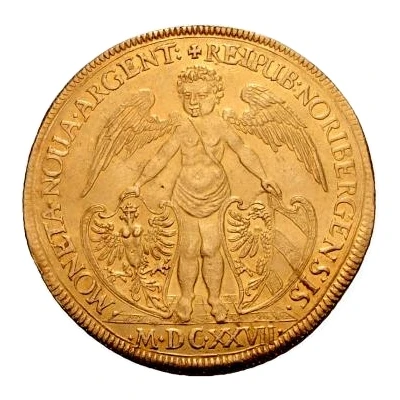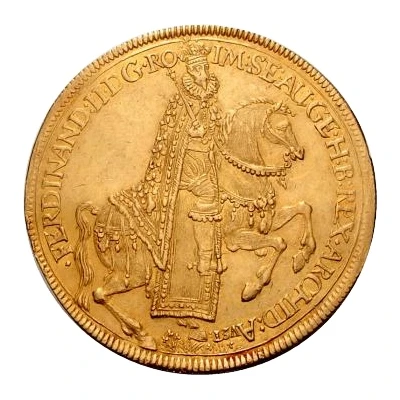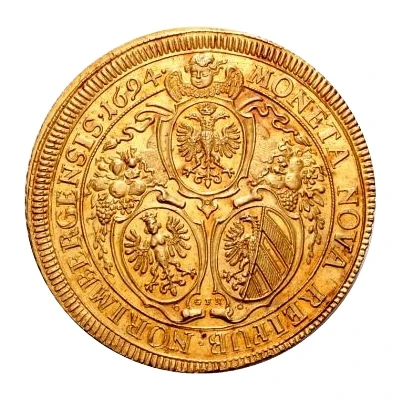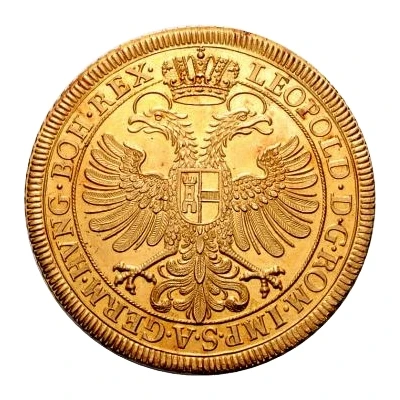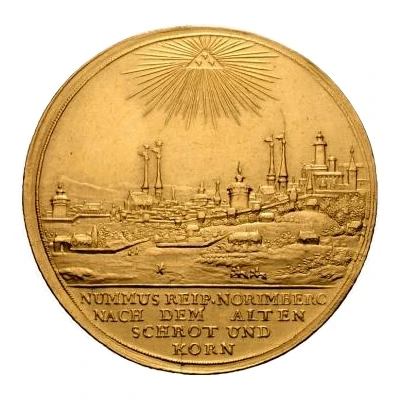
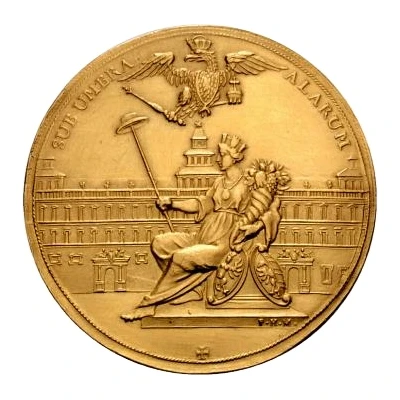

© Hess Divo
10 Ducats ND
1688 year| Gold (.986) | 34.61 g | 44 mm |
| Issuer | Free imperial city of Nuremberg (German States) |
|---|---|
| Period | Free City (1219-1806) |
| Type | Standard circulation coin |
| Year | 1688 |
| Value | 10 Ducats (10 Dukaten) (35) |
| Currency | Reichsguldiner (1620-1753) |
| Composition | Gold (.986) |
| Weight | 34.61 g |
| Diameter | 44 mm |
| Shape | Round |
| Technique | Milled |
| Demonetized | Yes |
| Updated | 2024-10-05 |
| Numista | N#132568 |
|---|---|
| Rarity index | 97% |
Reverse
Crowned eagle above City Hall, seated figure of Nurnberg in foreground.
Script: Latin
Lettering: SUB UMBRA - ALARUM
Engraver: Philipp Heinrich Müller
Interesting fact
One interesting fact about the 10 Ducats ND (1688) coin from the Free Imperial City of Nuremberg is that it features a unique design element - a small hole in the center of the coin. This hole was intentionally drilled into the coin as a way to test its authenticity. In the 17th century, counterfeiters were known to produce fake coins made of cheaper metals, so the hole was added as a way to ensure that the coin was made of genuine gold. The presence of the hole in the center of the coin became a distinctive feature of Nuremberg's coins and helped to prevent counterfeiting.
